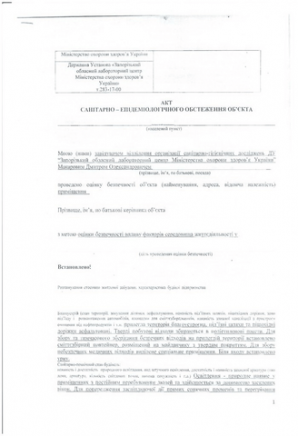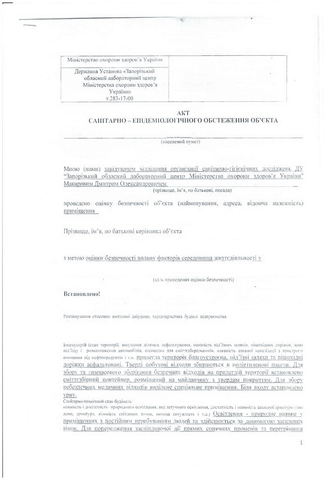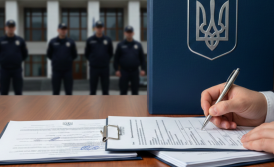Royalties for use of objects of copyright and related rights in Ukraine
Cost of services:
Reviews of our Clients
... our work on joint projects assured us of your high level of professionalism
Issue of copyright and related rights royalties payment for public use of music in hotels and restaurants is still very relevant.
Another confirmation of it was provided by meeting of Committee on finances and law of Hoteliers and restaurateurs Club. The matter of the meeting was “Payment of royalties for use of soundtracks” (practice of residual in Ukraine). Owners, managers, financiers and accountants of enterprises in the field or hotel and restaurant services took part in the meeting, there were representatives of majority of Kiev five-star hotels among guests. Representatives of the State Intellectual Property Service of Ukraine and performance rights organizations (PRO) also were also among the visitors.
During the discussion it became obvious that hotels and restaurants (hereinafter – establishments) in Ukraine have already reached the level of do not considering non-legal ways of using copyright objects. But it’s that legal framework does not satisfy the requirements of the market.
Despite the fact that law of Ukraine “On copyright and related rights” has been in force for 19 years the legislation and practice of its enforcement does not allow owners and managers of hotel and restaurant business to understand to whom and in what amount should royalties be paid for public performance of music in their establishments.
In this article we will highlight some aspects of the issue and provide recommendations on lawful use of music.
As for powers of performance rights organization (PRO) related to collecting royalties for using of copyrights and related rights.
The law (Art.45) allows a copyright holder to manage his copyrights and related rights personally, through attorney or PRO (in Ukraine it has another designation – organization of collective management). In latter case such management is called collective since such organizations obtain rights from many copyright holders, organize them in the form of catalogue, enter into agreements with establishments and collect royalties for the use of tracks from their catalogues. Money that are collected from establishments in further will be proportionally divided between copyrights holders in accordance with reports of the establishments which include information about which tracks from the catalogue were used and how often were they used.
Article 48 of the Law stipulates that power for collective management of copyright may be obtained by a collective management organization only after written agreement is signed (Section 3) with copyright holders and only these agreements serve as a legal ground for an establishment to use copyrights and related rights to musical composition (Section 5).
As of today there have been registered about 15 organizations the key difference between which is the size and content of their catalogues. A particular hotel or restaurant is visited by representatives of 2 or 3 different organizations showing their catalogues and convincing to enter into agreement with their organization.
However the procedure of catalogue actuality confirmation during entry into agreement with establishments is not regulated in Ukraine.
And it is quite a mistake because copyrights holders are free to take their copyrights from one organization and transfer them to another one or even not to do so which is quite common in practice. Very often even managers of organizations cannot vouch that the organization holds a particular track at the moment and it cannot be confirmed definitely by documents.
How can an establishment be sure that the performance rights organisation does have contracts with copyright holders which are included into the catalogue and royalties that are paid by an establishment will be transferred to the copyright holder? The legislator does not provide any answer.
Maybe according to legislation liability for violation of copyrights and related rights in case of illegal inclusion of tracks into its catalogue will be assumed by the collective management organization? No, the legislation stipulates nothing like that.
It turns out that such key issue as legitimacy of catalogue is based only on trust into the words of organization.
In practice this issue is a significant obstacle for entry into agreement between establishments and organizations since it may cause illegal use of copyright for particular music tracks by establishment even if agreements were entered into and royalties were paid.
So what about practical aspect of this issue? Based on Section 2 of Article 49 of the Law, organizations of collective management guaranty protection for enterprises which entered into agreement with them from claims of copyright holders if such appear. They assure that there have been no cases for the entire history of independent Ukraine and in their own practice when a client of the organization would face liability based on claims of copyright holders. Some kind of a “front”.
Maybe it is the reason of idea expressed on numerous occasions during Club’s meeting that agreements should be entered into only with the most influential and long-existing collective management organizations.
Another issue is related to the amount of royalties which should be paid by an establishment for use of musical compositions.
In accordance with the Resolution number 72 of the Cabinet of Ministers of Ukraine “On approval of minimal rates of royalties for use of copyrights and related rights” dated 18.01.2003 the minimal amount of royalties must comprise be 1% of revenues which were obtained by an enterprise from the type of activity in which compositions were used. At the same time the revenue is defined as entire amount of money that was paid to the establishment for goods, works and services (more details in the Regulation (standard) of accounting number 15 “Revenue” which is approved by the Order number 290 of the Ministry of Finance of Ukraine dated 29.11.1999).
Amount of royalties which is proportionate to the revenues of an establishment is not supported by the establishments since in this case there is inconsistency between reward rate and actual part of musical compositions in structure of services which are provided by an establishment. Also the establishments do not always wish to uncover information about their revenues.
In this regard a regulation which sets the minimal amount of royalties is almost always omitted when agreements are entered into by establishments and organizations.
Instead of this regulation organizations are eager to develop their own criteria for the amount of reward calculation. They include level of an establishment, cost of services, number of places and other. While applying such approach the amount of royalties which is paid by an establishment is 3-4 times less than minimal one.
Is it legal? Yes, if a collective management organization has the right to collect reward in the amount which is less than the minimal one. Such right may be provided only by a written agreement between a collective management organization and copyright holder.
How can an establishment make sure that an organization is acting within its authority?
The legislator did not provide any special procedures for this which in practice led to the situation when establishments have nothing to do but to believe in words of organizations. This leaves them without any legal guaranties for protection.
At the same time liability for copyright and related rights infringement is more than just defined.
In accordance with Section 5 of the Law an enterprise which infringed copyrights or related rights may face civil liability and its officials – criminal or administrative one.
The Law provides quite severe penalties.
Among other things a copyright holder may demand:
- Compensation of damage (based on calculations on which the minimal amount of royalty equals to 1% of enterprise income;
- Recovery of compensation from an enterprise in the amount from 10 to 50000 minimum wages (as of the date when the article is written it equals to 11000 UAH to 55100000 UAH);
- Moral compensation.
It is worth mentioning that courts in majority of cases will support the copyright holder and impose significant penalties to be paid by the establishments. Another point not in favor of the establishments is that courts do not set any special requirements for proof of guilt and accept video and audio recordings, testimonies of witnesses, documents issued by representatives of collective management organizations and other persons as evidence.
So what should be done?
First of all one must accept the fact that compositions which are to be performed in the establishment should be chosen from catalogue of collective management organization which an establishment will later enter into agreement with. In other case administration will most likely have no control over adherence of copyrights and related rights in an establishment.
The only chance to deal with the omissions of legislation is legally appropriate inclusion of provisions into agreements between an establishment and a collective management organization which are related to liability of latter for the breach.
In particular it is recommended to obligate an organization to:
- Provide legally significant guaranties of catalogue actuality at the moment of entry into agreement. Also an establishment should demand proof of authorization by copyright holder which is required to enter into current agreement;
- Agree on the amount of reward which is stipulated in the agreement with a copyright holder in case when it is less than the minimal one;
- Settle all disputes with copyright holders which are included into catalogue if there are any;
- To inform an establishment about key matters during the entire term of agreement.
It is also required to stipulate the liability of an organization for breach of the abovementioned obligations in the amount of real damages which will be caused to an enterprise by possible claims of copyright holder.
Only in this case an establishment will be able to secure adherence of copyright and related rights during public performance of musical compositions and if there arise any disputes with copyright holder an establishment can expect real support of a collective management organization or compensation of all damages at latter cost.
Our clients
















